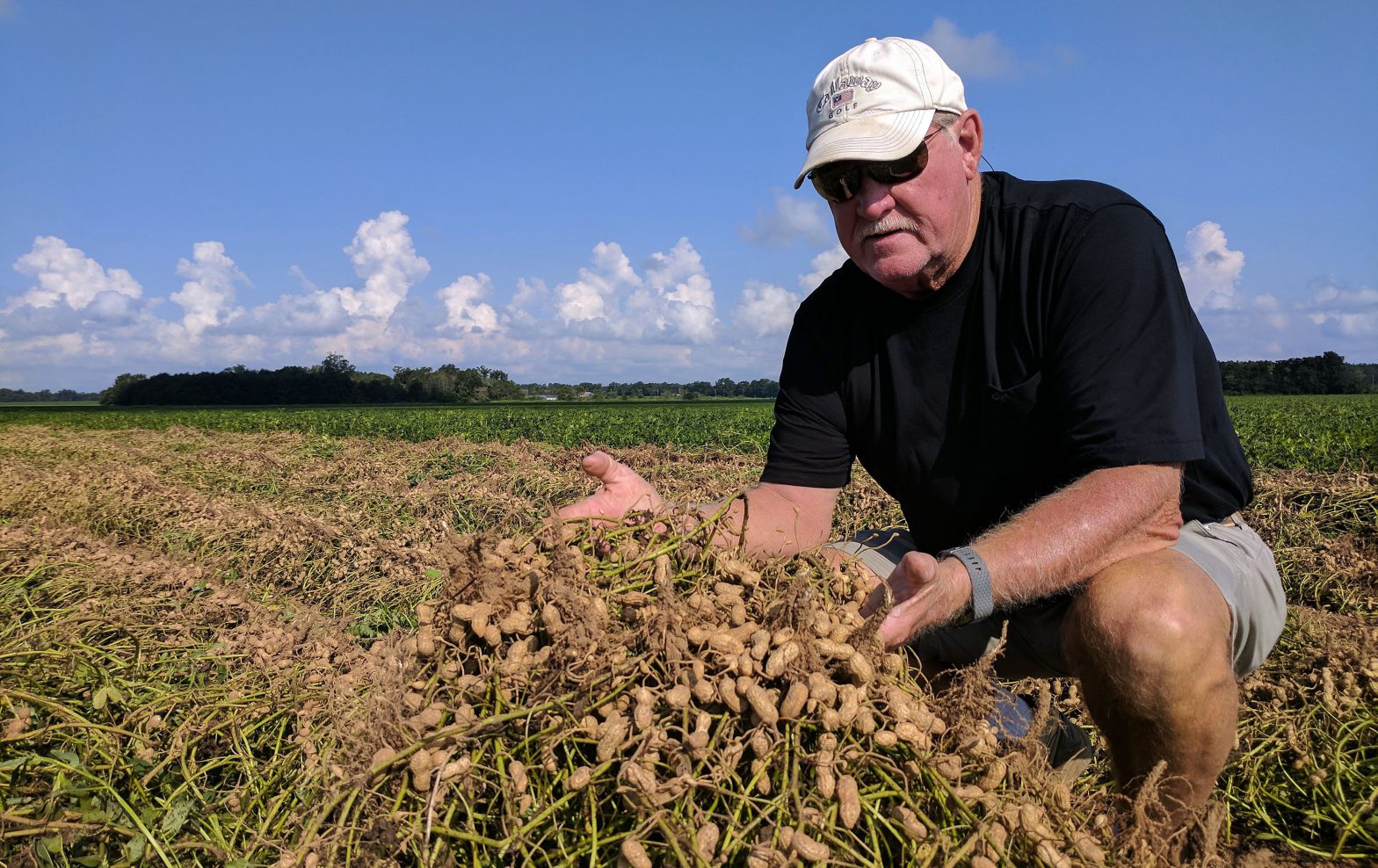BAKER — Surrounded by 2,500 acres of cotton and peanut farm in Baker, James Marshall, his wife Helen, and their son Nick reflect on farming in today’s world.
“It’s a job that you’re going to get out of it whatever you put in it just like anything else,” James said. “You work hard at it, you’re going to get rewarded down the line.”
The Marshall family works “can to can’t” from spring to fall.
“It takes a special person to be able to do it,” James said.
“It’s a lot of hours,” Nick said.
The Marshall family has been farming for over 40 years. James began farming at his father’s farm in Jay when he was 18. He moved to Baker in the 70s and began Marshall Farms in 1977. Nick began farming with his father in 1999 after graduating from Baker School.
Marshall Farms recently received a County Alliance for Responsible Environmental Stewardship (CARES) award by the Florida Farm Bureau Federation for their advanced farming techniques.
These include paying a fee for genetically modified or “BT” cotton plants meant to minimize spraying of harmful insecticides and the strip-till practice — plowing a smaller strip for erosion control.
They also use a GPS tracking system on their fertilizer and spraying machines keeping them from over-saturating crops.
Although some new advances in farming are environmentally beneficial, they're pricey. One new piece of equipment they looked into buying was at least $300,000.
Along with equipment costs, farmers face battles with nature and economics. Tariffs are a source of uncertainty causing a revenue drop for some farmers.
James said the current tariffs are “killing us” because China is not buying cotton produced in the U.S.
Nick, monitoring cotton prices on his phone, said cotton dropped 150 points or a penny and a half that morning. For Marshall Farms, that means losing about $30,000 a day.
“The crazy part about it is that there’s no rhyme or reason for it because the United States crop this year is in bad shape…The only good cotton this year is in the southeast,” Nick said.
James and Nick also mentioned a recurring fear — weather, namely drought and hurricanes.
The peak season for hurricanes is June 1 to Nov. 30 — the cotton and peanut harvest period.
If Marshall Farms had experienced a hurricane like Florence, James said all of their cotton would be ruined. Some fellow farmers in North Carolina have, he said.
Most farmers purchase crop insurance to protect losses during a natural disaster, which James said, for their farm, is about $135,000 a year.
Still, the Marshall family can't imagine not farming.
“We’ve all grew up on a farm. It’s just part of our blood to love it,” Helen said.
This article originally appeared on Crestview News Bulletin: "It's just part of our blood to love it"
